It’s November again and we’re almost ready for the kick-off of one of the greatest computer sports events in the world – the SC Student Cluster Competition. This is the twelfth time that teams of university undergraduates have vied to get the greatest amount of compute performance while keeping their self-designed clusters under the 3,000 watt power cap.
The SC competition is a 46-hour marathon, where students are running multiple workloads on their clusters day and night, and optimizing on the fly in order to achieve the highest scores on the various benchmarks and HPC applications.
The field this year has 14 teams, a nice mix of veterans and newcomers, along with several championship clubs who are looking to add the SC18 Championship trophy to their trophy cases. (Metaphorically speaking, since the winning teams actually receive certificates.)
Now let’s see who made it into the competition….
![]() Friedrich-Alexander University: this is a veteran team from Germany competing in their ninth international cluster competition. Team FAU has won two LINPACK awards, taking home the HPL crown at ISC17 and ISC18. FAU also took home the Bronze at SC13. Definitely a team to be reckoned with.
Friedrich-Alexander University: this is a veteran team from Germany competing in their ninth international cluster competition. Team FAU has won two LINPACK awards, taking home the HPL crown at ISC17 and ISC18. FAU also took home the Bronze at SC13. Definitely a team to be reckoned with.
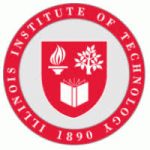 Illinois Institute of Technology: has competed in four major cluster competitions, including this year’s SC18. They’re a solid team that hasn’t yet found the magic that will lead them to the SC18 Golden Chalice of Victory (which doesn’t exist but should.) The team is supported by Argonne National Lab as well as their academic institution.
Illinois Institute of Technology: has competed in four major cluster competitions, including this year’s SC18. They’re a solid team that hasn’t yet found the magic that will lead them to the SC18 Golden Chalice of Victory (which doesn’t exist but should.) The team is supported by Argonne National Lab as well as their academic institution.
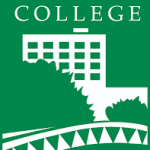 Laney College: is a US community college located in Oakland, California. Team Oaktown (as I’ve dubbed them) is competing for the first time in a major cluster competition. It’s hard to rate their game when it’s the first time they’ve taken the court, but I think this is a team that came here to show that community colleges can be competitive with the hoity toity la-dee-da big time universities. Take it to ’em, Laney.
Laney College: is a US community college located in Oakland, California. Team Oaktown (as I’ve dubbed them) is competing for the first time in a major cluster competition. It’s hard to rate their game when it’s the first time they’ve taken the court, but I think this is a team that came here to show that community colleges can be competitive with the hoity toity la-dee-da big time universities. Take it to ’em, Laney.
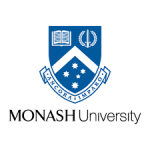 Monash University: is the sole team from down under (meaning Australia). Team Monash is a first time competitor that has traveled more than 9,000 miles to be here in Dallas. I don’t think they came all that way to just show up and collect a participation certificate. I figure this AC/DC powered team came to win, or at least place or show. We’ll see what happens.
Monash University: is the sole team from down under (meaning Australia). Team Monash is a first time competitor that has traveled more than 9,000 miles to be here in Dallas. I don’t think they came all that way to just show up and collect a participation certificate. I figure this AC/DC powered team came to win, or at least place or show. We’ll see what happens.
![]() Nanyang Technological University: is another nine-time competitor, having traveled all the way from Singapore to the Dallas conference. This team has been on an upward trajectory, having won the Overall Championship and LINPACK awards at SC17. The team also grabbed a silver medal at ISC18 in Frankfurt. They’re making a big move to become a perennial favorite among cluster competition insiders.
Nanyang Technological University: is another nine-time competitor, having traveled all the way from Singapore to the Dallas conference. This team has been on an upward trajectory, having won the Overall Championship and LINPACK awards at SC17. The team also grabbed a silver medal at ISC18 in Frankfurt. They’re making a big move to become a perennial favorite among cluster competition insiders.
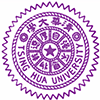 National Tsing Hua University (NTHU): this is one of the most seasoned teams in the competition. Team Taiwan, as I call them, has competed at 14 major events, and taken home a bevy of awards including two gold medals, a silver, two bronze, and an amazing four LINPACK championships. Although the team hasn’t won a big-time award recently, they have the skills and experience to strike gold this year.
National Tsing Hua University (NTHU): this is one of the most seasoned teams in the competition. Team Taiwan, as I call them, has competed at 14 major events, and taken home a bevy of awards including two gold medals, a silver, two bronze, and an amazing four LINPACK championships. Although the team hasn’t won a big-time award recently, they have the skills and experience to strike gold this year.
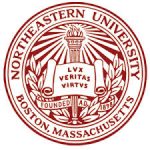 Northeastern University: this will be the fifth major competition for the Northeastern “Hacks” (Huskies with Accelerated Computing Kernels). They’ve competed at ISC’15, ISC’17, SC’15, SC’16 and, of course, SC’18. This is a team that’s always trying new and innovative approaches. This paid off at ISC’17 when their team (in partnership with Purdue) nabbed the highest HPCG score in the competition.
Northeastern University: this will be the fifth major competition for the Northeastern “Hacks” (Huskies with Accelerated Computing Kernels). They’ve competed at ISC’15, ISC’17, SC’15, SC’16 and, of course, SC’18. This is a team that’s always trying new and innovative approaches. This paid off at ISC’17 when their team (in partnership with Purdue) nabbed the highest HPCG score in the competition.
![]() Purdue University: This is one of the most active teams in cluster competition history. With this year’s SC18 outing, Purdue has participated in a grand total of 13 major competitions – including appearances at ISC in Germany and the ASC tourney in China. This year’s team, dubbed the AdaSix, is unique in that it is exclusively female. Their appearance marks the fourth time an all-female team has competed in a student cluster competition and is a first for the Boilermakers. Let’s hope that competition #13 is lucky for the AdaSix.
Purdue University: This is one of the most active teams in cluster competition history. With this year’s SC18 outing, Purdue has participated in a grand total of 13 major competitions – including appearances at ISC in Germany and the ASC tourney in China. This year’s team, dubbed the AdaSix, is unique in that it is exclusively female. Their appearance marks the fourth time an all-female team has competed in a student cluster competition and is a first for the Boilermakers. Let’s hope that competition #13 is lucky for the AdaSix.
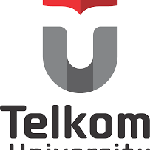 Telkom University: is making their first appearance in a major student cluster competition this year. The team, from Indonesia, traveled a long way to be here – over 22 hours flight time. While we don’t know much about the team or their strategy, their heads are in the right place judging by the name of their team, which is Komodo. Better known by their full name, Komodo Dragons, this lizard is known for being silent but deadly, with a big venomous bite. Scary!
Telkom University: is making their first appearance in a major student cluster competition this year. The team, from Indonesia, traveled a long way to be here – over 22 hours flight time. While we don’t know much about the team or their strategy, their heads are in the right place judging by the name of their team, which is Komodo. Better known by their full name, Komodo Dragons, this lizard is known for being silent but deadly, with a big venomous bite. Scary!
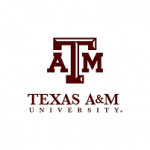 Texas A&M University: The Aggies are the home team this year and it’s up to them to defend the honor of Texas. Is that a lot of pressure? Yes. Is it too much pressure to put on a team of undergrad students? No. The state of Texas takes competition seriously, whether it’s on the football field or on the data center floor. This is the second cluster competition event for these Aggies, their first was in the ‘ice bowl’ at ASC’18 in China. The Aggie team was snake bit in China and didn’t quite have the oomph to get to the top of the pack. We’ll see what happens this year when they’re playing on home turf.
Texas A&M University: The Aggies are the home team this year and it’s up to them to defend the honor of Texas. Is that a lot of pressure? Yes. Is it too much pressure to put on a team of undergrad students? No. The state of Texas takes competition seriously, whether it’s on the football field or on the data center floor. This is the second cluster competition event for these Aggies, their first was in the ‘ice bowl’ at ASC’18 in China. The Aggie team was snake bit in China and didn’t quite have the oomph to get to the top of the pack. We’ll see what happens this year when they’re playing on home turf.
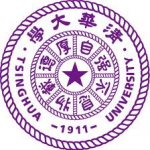 Tsinghua University: is a team on a mission. They’re trying to achieve another Triple Crown of clustering, which means winning every major cluster competition in a single year. The team is set-up for the win, with a dominating performance at ASC’18 and a win at ISC’18. In order to complete this quest, they need to take the SC’18 Overall Championship – but there are 14 other teams in their way. They completed the Triple Crown in 2015, can they do it? We’ll know soon…..
Tsinghua University: is a team on a mission. They’re trying to achieve another Triple Crown of clustering, which means winning every major cluster competition in a single year. The team is set-up for the win, with a dominating performance at ASC’18 and a win at ISC’18. In order to complete this quest, they need to take the SC’18 Overall Championship – but there are 14 other teams in their way. They completed the Triple Crown in 2015, can they do it? We’ll know soon…..
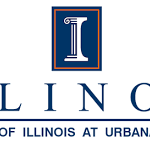 University of Illinois Urbana-Champaign: has competed in the last two SC cluster competitions and is looking to make a big move in this, their third, competition. The team is sponsored and supported by Cray, their university, and the US NCSA – which is quite a combination of expertise to have in your corner. They also have the power of Rick Astley behind them, having selected “Never Gonna Give You Up” as their team theme song. (I’m pretty sure that is the first time Cray and Rick Astley have been referenced in the same paragraph.)
University of Illinois Urbana-Champaign: has competed in the last two SC cluster competitions and is looking to make a big move in this, their third, competition. The team is sponsored and supported by Cray, their university, and the US NCSA – which is quite a combination of expertise to have in your corner. They also have the power of Rick Astley behind them, having selected “Never Gonna Give You Up” as their team theme song. (I’m pretty sure that is the first time Cray and Rick Astley have been referenced in the same paragraph.)
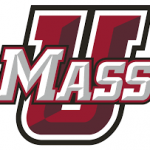 University of Massachusetts: has taken on the name MGHPCC – which is the moniker that most cluster competition aficionados will recognize from past competitions. The MGHPCC, also known as “Team Boston” or “Team Chowder” has competed in many cluster events and in all of the major international competitions. The team has had its ups and downs over the years but seems to be on the upswing over the past couple of years due to strong student leadership. Let’s see if they can get over the hump and get on the podium this year, that would be something to see.
University of Massachusetts: has taken on the name MGHPCC – which is the moniker that most cluster competition aficionados will recognize from past competitions. The MGHPCC, also known as “Team Boston” or “Team Chowder” has competed in many cluster events and in all of the major international competitions. The team has had its ups and downs over the years but seems to be on the upswing over the past couple of years due to strong student leadership. Let’s see if they can get over the hump and get on the podium this year, that would be something to see.
 University of Warsaw: is a combined team featuring students from the University of Warsaw, Lodz University of Technology, and the University of Wroclaw, all in Poland. The team has recently competed at ASC’17, ISC’17, and ISC’18. This will be their fourth cluster competition event. While the team has yet to experience the glory of a cluster competition major prize, they have a lot of spunk and I expect to see better things for them in the near future. Their mentor, Dr. Marek Michalewicz, is moving heaven and earth to turn Team Warsaw into a top echelon cluster competition power. And Dr. Michalewicz can be very persuasive and has a talent for motivating people. Keep an eye on this team.
University of Warsaw: is a combined team featuring students from the University of Warsaw, Lodz University of Technology, and the University of Wroclaw, all in Poland. The team has recently competed at ASC’17, ISC’17, and ISC’18. This will be their fourth cluster competition event. While the team has yet to experience the glory of a cluster competition major prize, they have a lot of spunk and I expect to see better things for them in the near future. Their mentor, Dr. Marek Michalewicz, is moving heaven and earth to turn Team Warsaw into a top echelon cluster competition power. And Dr. Michalewicz can be very persuasive and has a talent for motivating people. Keep an eye on this team.
 Wake Forest University: the “Daemon Deacons” (a clever play on their university mascot and a tech term) are first time competitors in the cluster game. According to a team spokesperson, they closely observed the competition last year then decided to try their hand this year. The team convinced their faculty to offer an HPC centric class, which served to speed the training of the team. They were able to work out their cluster chops on the school’s DEAC supercomputer which boasts more than 3,500 CPU and 12,000 GPU cores. Have they prepared enough? Are they ready for the 48-hour marathon that is the SC cluster competition? Time will tell.
Wake Forest University: the “Daemon Deacons” (a clever play on their university mascot and a tech term) are first time competitors in the cluster game. According to a team spokesperson, they closely observed the competition last year then decided to try their hand this year. The team convinced their faculty to offer an HPC centric class, which served to speed the training of the team. They were able to work out their cluster chops on the school’s DEAC supercomputer which boasts more than 3,500 CPU and 12,000 GPU cores. Have they prepared enough? Are they ready for the 48-hour marathon that is the SC cluster competition? Time will tell.
So that’s the field for the SC18 Student Cluster Competition. Stay tuned for more exciting coverage….
Posted In: Latest News, SC 2018 Dallas
